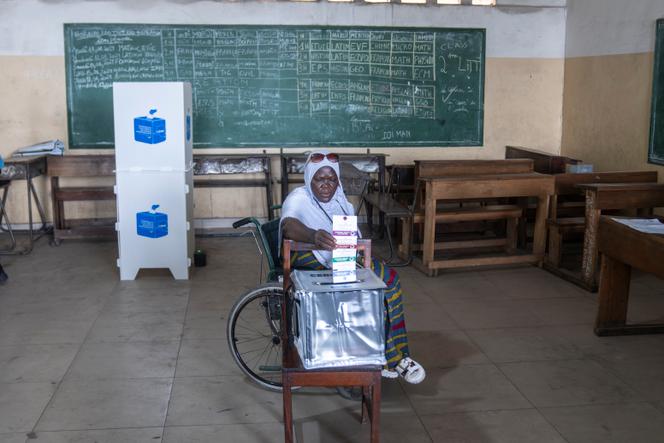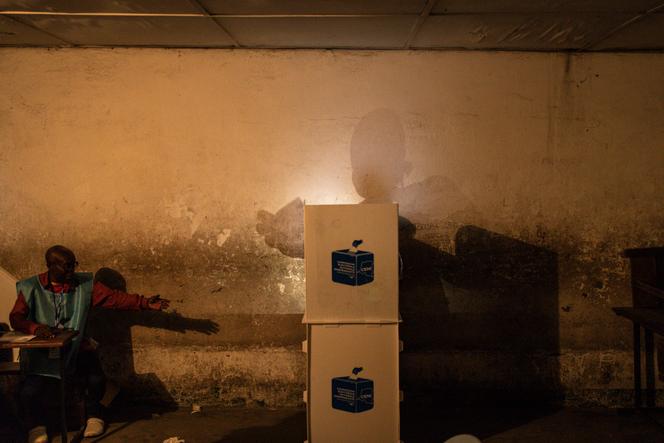


Predicting the outcome of the Democratic Republic of Congo (DRC) presidential election that started on Wednesday, December 20, at the same time as national and regional legislative elections, as well as communal elections, almost resembles chaos theory, in trying to predict the impact of small initial problems on the outcome. What will be the result of the major initial delays at the start of this crucial day?
For many reasons, the delays confirm the fears expressed in the run-up to the vote by opposition political parties and many observers. They could also fuel doubts about the legitimacy of the ballot, given that the incumbent president, 60-year-old Félix Chisekedi, is seeking a second term in office. His opposition is in disarray.
Until the last moment, diplomats and observers questioned the country's ability to organize the ballot on the scheduled date, raising the threat of delay, as when former president Joseph Kabila delayed the 2016 elections by two years to stay in power. The logistical challenge is enormous if the Congolese are to express their choice at one of the 75,000 polling stations. In this country of 100 million civilians, some 44 million voters are spread over a territory of 880,000 square miles, four times the size of France.
The day began chaotically in Kinshasa. A non-representative sample of ten or so polling stations in the capital gave an idea of the scale. In the Binza Delvaux district of the Ngaliema municipality, voting had still not begun at 2 pm. Dozens of people had been milling around from 6 am, the theoretical start of voting, supposed to close at 5 pm.
In the polling station set up within the walls of the Révérend Samba school complex, power cuts have become the rule, but they became a real headache on Wednesday when the voting machines were delivered with discharged batteries. External lithium batteries had been provided, but it was impossible to find connecting cables. By early afternoon, election officials were still waiting for technicians from the Independent National Electoral Commission (CENI) "on their way since 10 am."
These voting machines, according to Bishop Donatien Nshole, spokesperson for the National Episcopal Conference of Congo (CENCO) and the Church of Christ in Congo (ECC) observation mission, were faulty in 45% of polling stations. This figure was established at 9:30 am based on reports from around one-fifth of its vast network. CENCO has deployed 25,000 observers throughout the Democratic Republic of Congo (DRC).
At another polling station in the Basoko district, voters waited on shaded bleachers around a basketball court. For some unknown reason, the voting machines had still not arrived by 3 pm. Jean René, the electoral officer of one of the polling stations, kept calm, even though the day before he had decided to sleep on the ground to "welcome the voters as soon as we open at 6 am." Peter, a student voting for the first time, had been there since dawn. He had come to vote "so that things change in this country so that we don't see the same faces." He wrote down the numbers of his four favorite candidates (the president, the two legislators, and the municipal candidate) "to find them in the machine," and said he was determined to wait.

During the last election in 2018, CENI had already widely implemented the use of this technology produced in South Korea. Voters insert their ballots and choose the candidates displayed on the touch screen. When the ballot has been electronically coded, it is placed in a box. Using the screen takes several minutes, and can take an eternity for people with little or no experience with digital devices. This year, new machines had been ordered from Korea, but most of those used on Wednesday came from storage in the DRC, where they had been sitting in a humid tropical environment for five years.
The tablets weren't the only problem. At one polling station in La Gombe, Kinshasa's central district, the lists of candidates hadn't arrived, while at another in Kitambo, the wrong ballot papers had been delivered. "We're here until tomorrow," one electoral officer sighed in the afternoon.
Three hours after the opening of polling stations, more than 31% had still not opened in the main towns, according to Bishop Donatien Nshole of CENCO, which deployed observers. CENI has promised to try to compensate for these delays. On Wednesday evening, its president Denis Kadima announced that "the offices that have not opened at all will do so on Thursday," without specifying the number of offices concerned.
These well-meaning statements fall on deaf ears with an opposition convinced that the entities responsible for organizing, controlling and certifying the vote are in thrall to the government. "It's total chaos planned by Denis Kadima," declared Martin Fayulu, one of the main opponents alongside Moïse Katumbi, after casting his vote in Kinshasa. He again accused the CENI of wanting to "force through" Chisekedi at all costs. Katumbi, considered Chisekedi's main challenger, called on voters to "watch" the count "until the end."
Faced with these problems, the Archbishop of Kinshasa, Monsignor Fridolin Ambongo, seen as a moral authority, hoped that "solutions will be found quickly, otherwise the elections will drag on for several days." Cyrille Ebotoko, representative of the CENCO observers, commented that he feared "a negative impact on the integrity of the process if it were to extend over several days." A European diplomat wondered, "Why didn't they delay the vote a week?"
Translation of an original article published in French on lemonde.fr; the publisher may only be liable for the French version.
